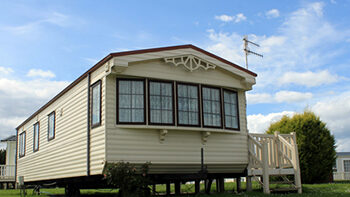
What is standard mobile home coverage, and who needs it?
If you have asked yourself, “Is standard mobile home insurance coverage right for me?” finding the answer to your question may actually be easier than you would think. For many mobile home owners, getting the baseline coverage policy is enough to protect the vast majority of their property. This kind of insurance policy covers damage that occurs to your property in the form of a peril. Perils are damaging events to a property, such as natural disasters (fire, hurricanes, tornados) or human attacks (theft, vandalism). Mobile home insurance is also often provided by normal insurance companies, who have assessors that specialize in helping you to determine how much coverage you need. Then, when your property is affected by a peril, your coverage can kick in to limit the amount that you will need to pay in repairing or rebuilding costs. Of course, mobile home insurance is also similar to other types of insurance in that it is regulated on the state level. This means that each different state is responsible for setting premium costs and coverage specifications for themselves, as well as which insurers can do business within their borders. You should generally choose to get mobile home insurance through one of these registered providers if you have a mobile home and wish to protect your finances from any dangers that might befall your property. There are also some differences between traditional homes and mobile homes with regards to insurance. Though some mobile homes are stuck in one place, others can actually live up to their name and move from one place to another. Because of this ability, mobile home insurance needs to be able to account for a wider variety of situations that could arise during the moving process. Mobile home insurance can also have added benefits that you would not normally get in traditional homeowners insurance coverage, including the ability to sometimes choose how often you make payments.Basic Mobile Home Coverage Options
Discovering what the standard mobile home insurance policies cover in your area may be best suited to asking your insurance agent what their company chooses to cover. However, most insurance companies tend to cover similar things, which can apply to a wide variety of people. The two major categories of standard manufactured home insurance include dwelling or personal property coverage, and liability coverage. The first category, dwelling or personal property coverage, has the following features:- It protects the structure of your home: If your mobile home is damaged by a fire, windstorm, burglary and more, this coverage will help to provide funds for repairs up to a certain amount. After that amount has been reached, the rest of your repairs will need to be paid for out-of-pocket.
- It protects qualifying additional structures: This includes patios, attached decks, sheds and stand-alone garages that are on your property. It can also occasionally cover cars, if your auto insurance is not enough.
- It protects most of your personal belongings: Although there is a cap for how much a standard mobile home insurance policy can provide, they can be used in providing financial aid for items that have been destroyed by peril. This includes clothing, appliances, furniture and more.
What Standard Mobile Home Insurance Does Not Cover
Although the standard mobile home insurance policy can cover many types of damage, policies do not cover everything. While some things can be purchased as supplemental coverage options under the term “mobile home insurance,” other scenarios require a whole different kind of insurance. Many perils that were not previously mentioned, such as floods or earthquakes, require specialized insurance coverage that you must purchase separately. However, your mobile home insurance agency may be able to sell this additional insurance as well, which could make paying for all of your insurance policies easier, and even provide special loyalty discounts. Your standard mobile home coverage can never encompass everything, but there are always additional policies and even supplemental coverage that you can pick up for a higher price.By Admin –